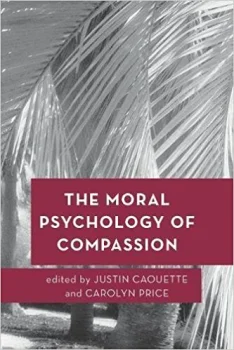
For a philosophical movement over two millennia old, Stoicism has been getting a lot of press of late. Perhaps because 2016 has felt like a year of one bit of bad news after another, people are looking for a way to cope with it all. At least one philosopher has begun to promote it as a good way to live one’s life, and one non-philosopher is selling it as a sort of self-help “life hack” to cope with the world and succeed.
The basic idea of Stoicism is that we ought not to focus and direct our energy towards that which we cannot control. Instead, we should focus on what we can control, such as our own thoughts, attitudes, and actions. Stoicism is notable for being a favourite mental resource for prisoners, who find themselves confined, mostly alone, and with very little control over their situation and their lives. The few resources available to them come from within, and in choosing to focus on their thoughts and actions, they find meaning in, and the ability to cope with, their situation.*
Of course, as with anything philosophical, there are the detractors. But it seems to me that those who think Stoicism is not the best response to take towards the world today are making this claim more forcefully than they might otherwise, perhaps for the same reason that the philosophy is seeing a resurgence: because our times seem to demand something of us, and some people aren’t convinced Stoicism is the right response to that demand.
For example, two philosophers on Twitter, Sandy Grant and Nigel Warburton, have made remarks about Stoicism in this vein. Warburton made this comment, on the night of the recent United States Presidential Election:
For her part, Grant has said:
Why do Grant and Warburton think Stoicism is not the right response to our current worldly circumstances? Well, I have not seen much detail (if anyone can link me to anything either of them, or anyone else, has written on this, please do!), but here is one thing they might mean: that Stoicism is inadequate for our times because our times demand that we take action to try to improve the condition of the world. And since taking action requires that we care about the issues that we wish to resolve, we need to care about the issues facing the world. This criticism of Stoicism seem to think that being Stoic precludes one from caring deeply about the problems facing the world, thus precluding action. Thus, Stoicism is not for our times.
I disagree. I think this sort of argument badly misunderstands what Stoicism is all about. The important premise of the argument I detected in the anti-Stoic comments is: Stoicism precludes one from caring deeply about the problems facing the world. But is this true? I don’t think it is. I think that caring about the world, and wanting to make it better is entirely compatible with Stoicism. Stoicism holds that one should not worry, obsess, or fret about that which we cannot control. Since we only have control over our own thoughts and actions, we should not worry, obsess, or fret about things outside of us. We should not dwell on them, as if our worry and anxiety could somehow change them. But this is entirely compatible with caring about the state of the world. We could care a lot about the state of things, and if we are not happy with how things are, it is perfectly normal to feel bad about this. But the point is that we should not dwell on how bad we feel, or worry and obsess about what it is in the world which is making us feel bad. Because that will not do anything but make us feel worse and get in the way of our living well.
Indeed, because Stoicism affirms that we should focus on what we can control — our thoughts and actions — Stoicism is an excellent attitude to take towards the world, because it focuses our attention on the following question: What can I do to make things better? **
It is a caricature of Stoicism to see a Stoic as one who is affected by nothing, cares about nothing, and removes themselves from the world and focuses on their own minds only. That is to take the image of the Stoic prisoner as definitive of the Good Life for the Stoic. But rather, Stoicism is a response to the life circumstances a prisoner faces. If the prisoner were not in prison, they would not, and should not, continue to live like they were!
And so, for these days in which the times seem out of joint, Stoicism contains exactly the sort of ideas we need not only to cope with them, but also to set them right.
* Granted, their scope of action is restricted, but it is not entirely restricted, in most cases. They still face choices about what to do with their time.
** Note that this need not be individual action: what one might choose to do to make things better is band together with like-minded people to effect change.






Alison K McConwell
December 15, 2016
Excellent post Brandon! Stoicism is more nuanced that I initially thought! Thanks for this.
LikeLiked by 1 person
vizi01
January 4, 2017
Do you guide yourself by Stoics’ take?
LikeLike
drenn1077
January 7, 2017
The only definition of stoicism I have seen is “blithe acceptance of whatever happens”
Indifference to pleasure or pain.
It says nothing of doing anything about what those things we can.
I have found that it leads to frustration.. that is, both stoicism and attempting to be indifferent. The better course I have found is to tame knee-jerk reactions and put thought into a response. Even if you cannot do anything about an issue voicing your opinion is at least doing something.
LikeLike